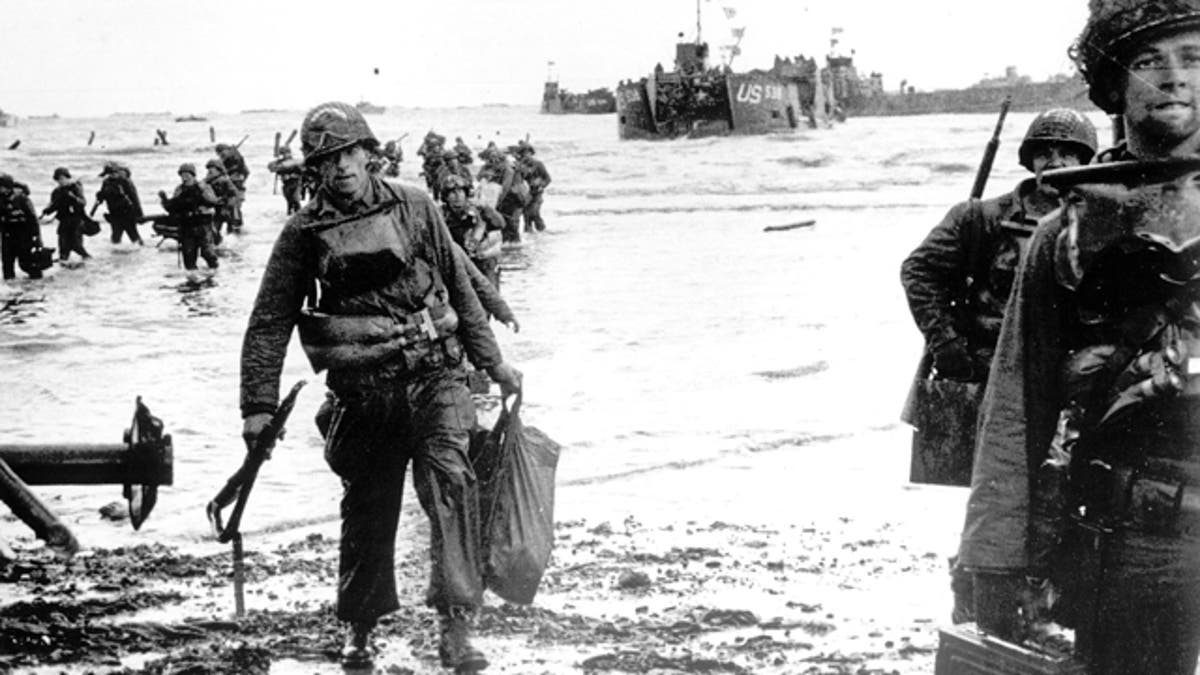
FILE: U.S. Army soldiers land on Omaha Beach during D-Day invasion, Normandy, France (AP)
The shores of Normandy were once invaded by Allied troops, but now face an invasion of wind turbines.
French President Nicolas Sarkozy approved a controversial initiative that calls for construction of a large wind farm 7 miles off the coast where Allied forces invaded on D-Day. These beaches included iconic names like Gold, Sword, Utah and Omaha.
The plans were announced as Europe tries to meet new renewable energy targets. But the wind farm’s location has drawn rebuke and ire from veterans' groups who call the beach sacred. The wind turbines will be visible from the beach.
Tim Holbert, the executive director of the American Veterans Center, said he understands the demand for countries to become more energy diverse, but said the French should reconsider plans.
"Thousands died there," he told FoxNews.com. "It's considered sacred ground for a lot of people."
Hal Baumgarten, who was wounded on Omaha Beach, called the area a “shrine.” He told the Daily Caller that 100-foot-tall windmills visible from the beach would be a "desecration.”
“When I look at it I see all the bodies — we lost a lot of people on D-Day, especially on my beach where we couldn’t get any reinforcements,” he told the Caller.
The French government is aware of the sensitivity of the issue and has tried to reassure opponents.
The impact on the view from Normandy would be "limited," a government spokesman told The Daily Mail.
A local politician from Normandy had previously said he “rejoiced” when learning about the plan, according to the paper. He said it would have “no impact on fishing or tourism.”
To be sure, wind farm complaints are not new. They often draw all sorts of scrutiny from residents who complain about the sound, its danger to birds or aesthetics. This turbine plan is set to go forward in 2015.
But the sentimentality for the historic stretch of beach is not limited to the men who attacked there. For milestone anniversaries, the beach attracts world leaders like Presidents Obama and Bush.
Opponents of the plans are seeking ways to halt the development.
Writer Robert Hardman wrote that he believes D-Day was the most pivotal moment in the history of modern democracy.
“It was the day when the free world gambled everything on a surprise punch in the face of totalitarianism,” he wrote in The Daily Mail. “And it worked.”








































